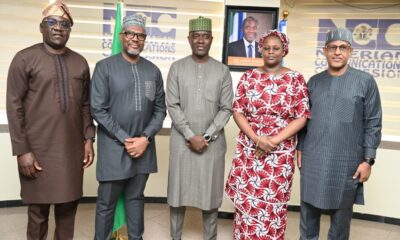Headlines
Senate expresses satisfaction with NCC’s regulatory performance
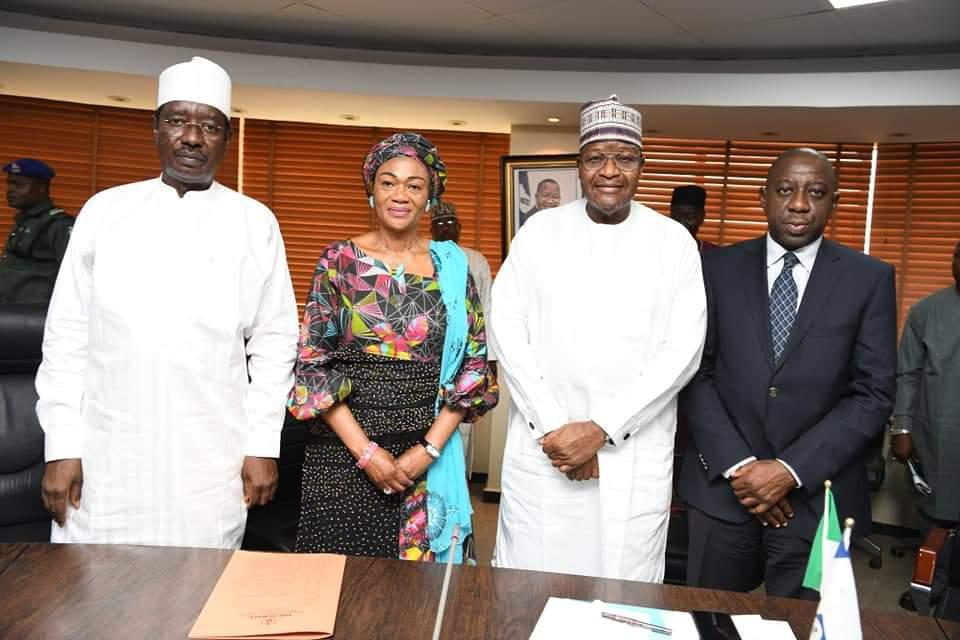
Nasiru Yusuf
The Senate Committee on Communications says it was impressed by the various regulatory interventions which the Nigerian Communications Commission (NCC) has taken to ensure improved service delivery and bridging access gaps in the country.
Senator Oluremi Tinubu, Chairman of the Committee, who led other members of the Committee to NCC’s Head Office in Abuja on a familiarisation and fact-finding visit on Tuesday (10/03/2020), said, given the mammoth of challenges facing the industry and the achievements of the Commission so far, its regulatory interventions and performance deserves to be appreciated and commended.
The committee members were received by the Executive Management team of the Commission, led by Prof. Umar Dambatta, NCC’s Executive Vice Chairman (EVC), who provided a detailed briefing of the Commission’s core mandates, its various initiatives that have helped to improve wider access to telecommunications as well as the challenges in the regulatory environment, which formed the basis for the comments made by the Committee members.
“We are here on a familiarisation and fact-finding tour to the Commission but I must say that we are impressed by the presentation made by the Executive Vice Chairman of NCC, Prof. Umar Dambatta, on the activities of the Commission so far in regulating the industry.

“We particularly see the Platinum Category Certificate of Award for exceptional organisational performance which NCC received from the Bureau of Public Service Reforms (BPSR) in 2017 as a testament to your recognition as a performing agency of the Federal Government. However, we want you to do more for Nigerians, ” Mrs. Tinubu said.
Earlier, while addressing the Committee members, Prof. Dambatta reeled out industry statistics which, irrefutably captured the growth recorded in the industry.
According to him, Nigeria attained and surpassed 30 percent broadband penetration target in December, 2018 and the penetration has further increase to 38.49 per cent as of December, 2019.
Also, Prof. Dambatta said the number of active phone lines has increased to over 185 million; active Internet subscriptions on global system for mobile communications (GSM), fixed wired and voice over internet protocol (VoIP) networks have equally increased to over 126 million.
The EVC added that teledensity is 96.76 per cent, and quarterly contribution of telecoms to gross domestic product (GDP) has reached 10.60 per cent. The NCC, through the Universal Service Provision Fund (USPF) has reduced the number of access-gaps clusters in the country further from 114. Hitherto, some 38 million Nigerians were affected by access gap clusters.
Prof. Dambatta explained to the Committee what the Commission has done, so far, with respect to spectrum administration in the sector. He stated that despite the crucial role of spectrum, and being a scarce resoure, the Commission has deployed spectrum quite effectively for the development of the telecom industry.
Some of the clear goal-oriented programmes in that regard include development of spectrum trading, ongoing effort to leverage Television White Space (TVWS) to address rural connectivity, the Proof of Concept (PoC) non-commercial trial of Fifth Generation (5G) networks, and development guidelines on commercial satellites deployment.
Prof. Dambatta stated that the Commission’s efforts in licensing Infrastructure Companies (InfraCos) to cascade fibre optic into the hinterland to reach all the 774 Local Government Areas (LGAs) in the country, is succeeding and will bolster government’s effort at expanding the nation’s broadband infrastructure.
The EVC recalled various inter-agency collaborations, frequent engagement of state governments to discuss issue of Right of Way (RoW), multiple regulations, taxation and other challenges, are consciously articulated towards improving deployment of telecoms infrastructure to ensure improved services for the telecom consumers.
The Commission, Prof. Dambatta said, has also issued various Directions to Mobile Metwork Operators (MNOs) with respect to roll-over data and forceful subscriptions to ensure that consumers are not shortchanged by market forces.
Similarly, Prof. Dambatta said the introduction of Do-Not-Disturb (DND) 2442 Short Code to manage unsolicited messages, the Toll-Free Number (622) for the escalation of complaints and the 112 Emergency Communication Number which is connected to the Emergency Communication Centres (ECCs), are conscious policies put in place to ensure that the rights of telecom consumers are safeguarded and to ensure that Nigerians enjoy derivable benefits of new communication technologies.
At the moment, eighteen (18) states of the Federation currently have operational ECCs while the efforts are ongoing by the Commission to ensure ECCs are operational in the remaining states in the country.
The EVC also told the Committee members that the Commission is instrumental to the listing of MTN and Airtel on the Nigeria Stock Exchange (NSE); resolved N1.03 trillion fine against MTN; promoted the Code of Corporate Governance in the industry from voluntary to mandatory compliance; developed new numbering plan to enhance opportunities for emerging technologies; and restructured the telecoms value-added services (VAS) segment resulting in licensing of 10 VAS aggregator companies,
Prof. Dambatta, who appreciated the support of the National Assembly so far, however, listed key issues affecting the regulatory environment. These, he said, include power, which is the biggest challenge facing telecommunications operations in the country; multiple regulations and multiple regulations; security challenges, vandalism and theft of telecom installations and transmission cable cuts; as well as RoW issue.
The Committee members assured NCC of their readiness to support the regulatory efforts of the Commission through legislative intervention and other collaboration towards addressing the challenges in the regulatory environment.
They also urged the NCC to focus more on increased access across the country as well as ensuring affordability of telecoms services for Nigerians.

Headlines
Kano business community thanks FG for N5bn Singer market relief
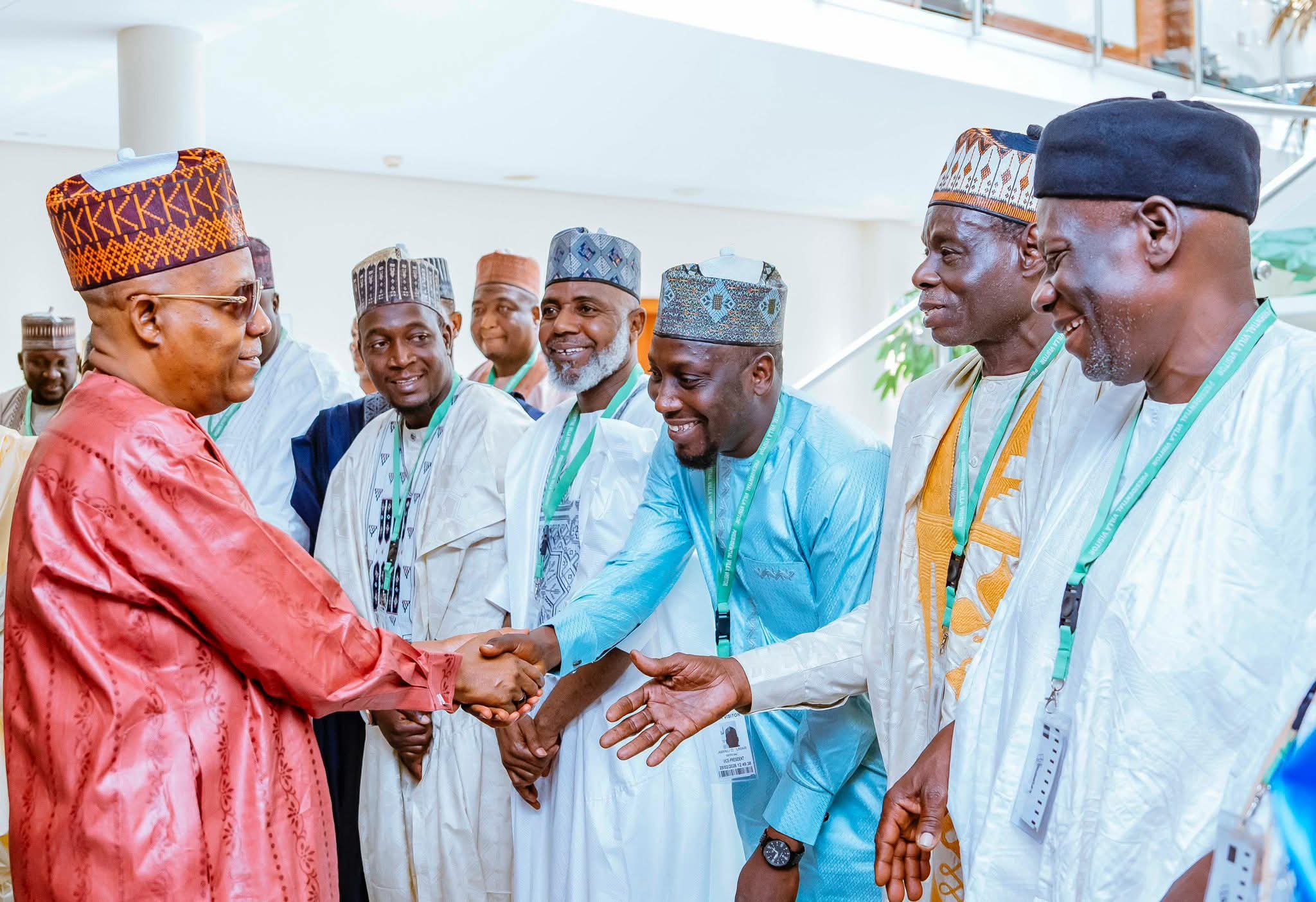
Nasiru Yusuf Ibrahim
Nigeria’s Vice President, Kashim Shettima, on Tuesday received a delegation from the Association of Kano Business Community at the Presidential Villa, Abuja, during a thank-you visit to President Bola Ahmed Tinubu.

KANO FOCUS reports that the delegation expressed appreciation to the Federal Government for its support to traders and other victims affected by the recent fire incident that razed several sections of the popular Singer Market in Kano.
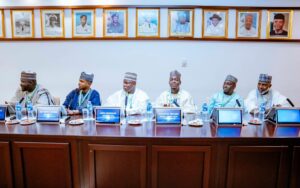
Speaking during the meeting, the Vice President reaffirmed the Federal Government’s commitment to collaborating with the Kano State Government and relevant agencies to prevent a recurrence of fire outbreaks in markets across the state.
He assured the delegation that President Tinubu has the interests of Kano people at heart, noting that the N5 billion approved as immediate relief for victims was based on the findings of a preliminary assessment of the damage caused by the inferno.
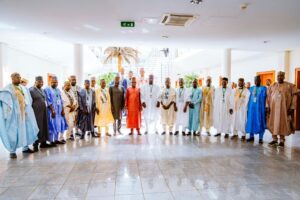
Shettima reiterated that the Federal Government would continue to support efforts aimed at restoring commercial activities and strengthening safety measures in markets to protect lives and property.

Headlines
Kano Govt inaugurates 23-member committee to disburse Singer market fire relief
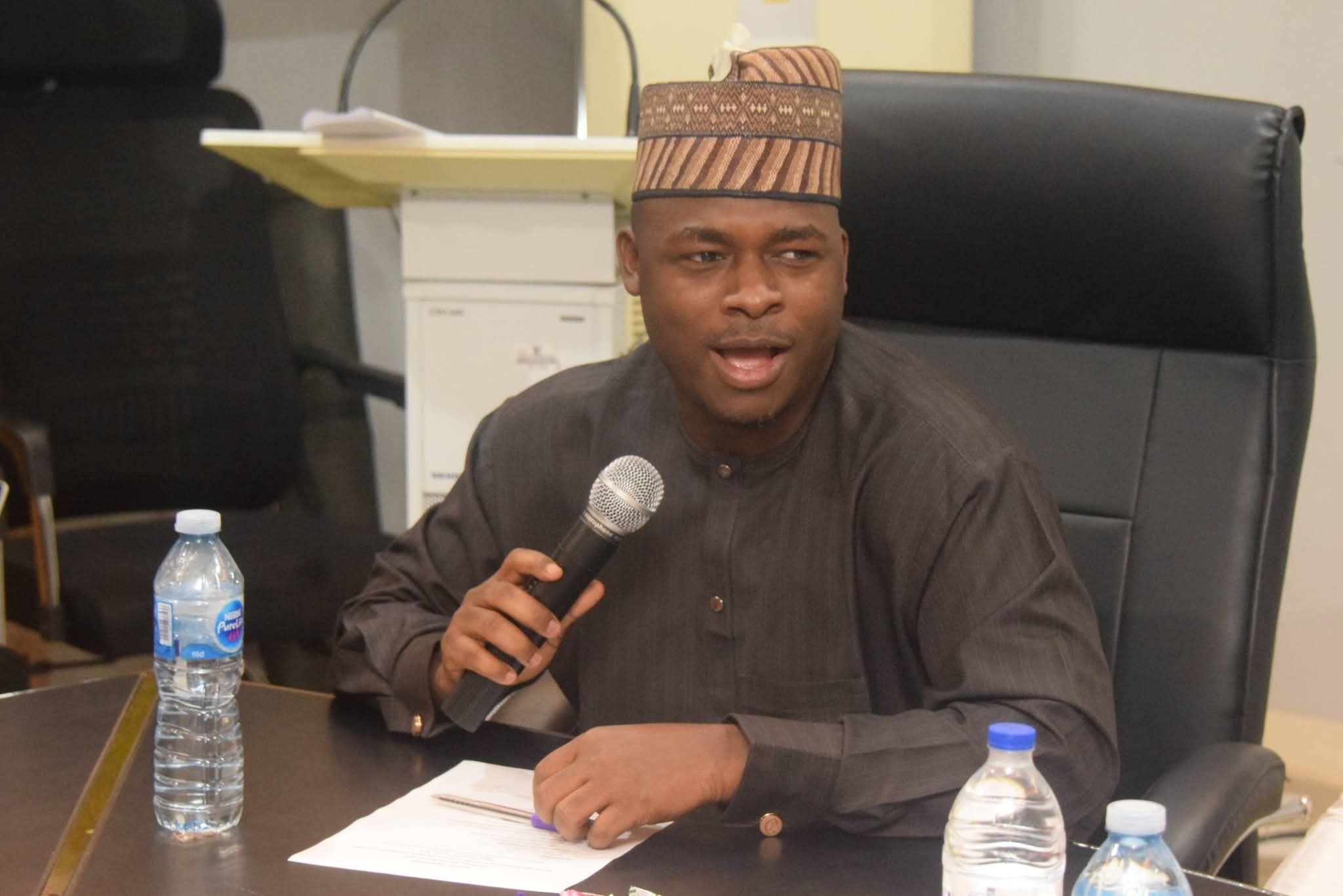
Nasiru Yusuf Ibrahim
The Kano State Government has inaugurated a 23-member committee to oversee the transparent and equitable distribution of financial assistance and relief materials to victims of the recent Singer Market fire disaster.

KANO FOCUS reports that the inauguration was carried out on behalf of the Secretary to the State Government, Umar Faruq Ibrahim, who chairs the committee. The event was presided over by the state Attorney-General and Commissioner for Justice, Abdulkarim Kabiru Maude.
According to the Attorney-General, the committee comprises representatives from key government agencies, security services, the Kano Emirate Council, religious leaders, and affected traders.
He said the panel’s mandate includes assessing the extent of losses, verifying genuine victims, ensuring timely distribution of support, and recommending measures to prevent future fire incidents.
The intervention follows support approved by President Bola Ahmed Tinubu, as well as contributions from the APC Governors Forum. It also comes in addition to earlier assistance provided by Governor Abba Kabir Yusuf and the Deputy Senate President, Barau I. Jibrin.
The state government reaffirmed its commitment to supporting victims of the disaster and restoring commercial activities at Singer Market.

Headlines
Kano Govt announces March 1 for schools’ Ramadan break
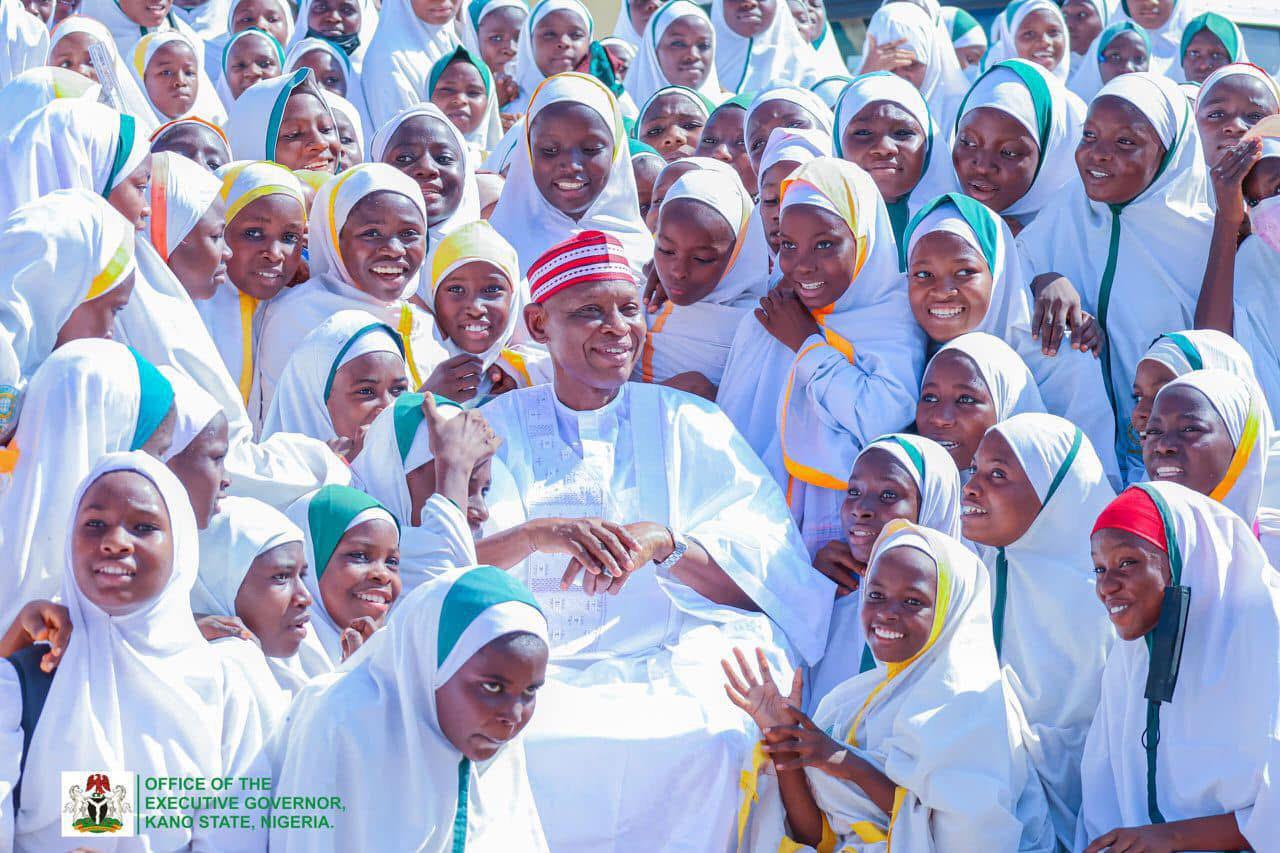
Nasiru Yusuf Ibrahim
The Kano State Government has announced Saturday, March 1, 2026, as the commencement date for the Eid-el-Fitr break for all public and private primary and post-primary schools in the state.

KANO FOCUS reports that the announcement, contained in the approved 2025/2026 academic calendar, applies to both day and boarding schools across the state.
According to a statement issued by the Director of Public Enlightenment, Musbahu Aminu Yakasai, parents and guardians of pupils and students in boarding schools are expected to convey their wards home by the early hours of Friday, February 28, 2026.
The statement further explained that boarding school students are to resume on Sunday, March 22, 2026, while day students are to resume on Monday, March 23, 2026.
It added that the second term will continue from Sunday, March 22, 2026, and end on Saturday, April 18, 2026.
The government directed all public and private schools in the state to comply strictly with the directive, warning that non-compliance would be treated as a breach of government instructions.
The Commissioner for Education, Ali Haruna Abubakar Makoda, urged parents and guardians to ensure full compliance with the approved resumption dates.
He appreciated parents and residents of the state for their continued cooperation and support to the ministry, and wished pupils and students a successful completion of the Ramadan fast and hitch-free Sallah celebrations.


